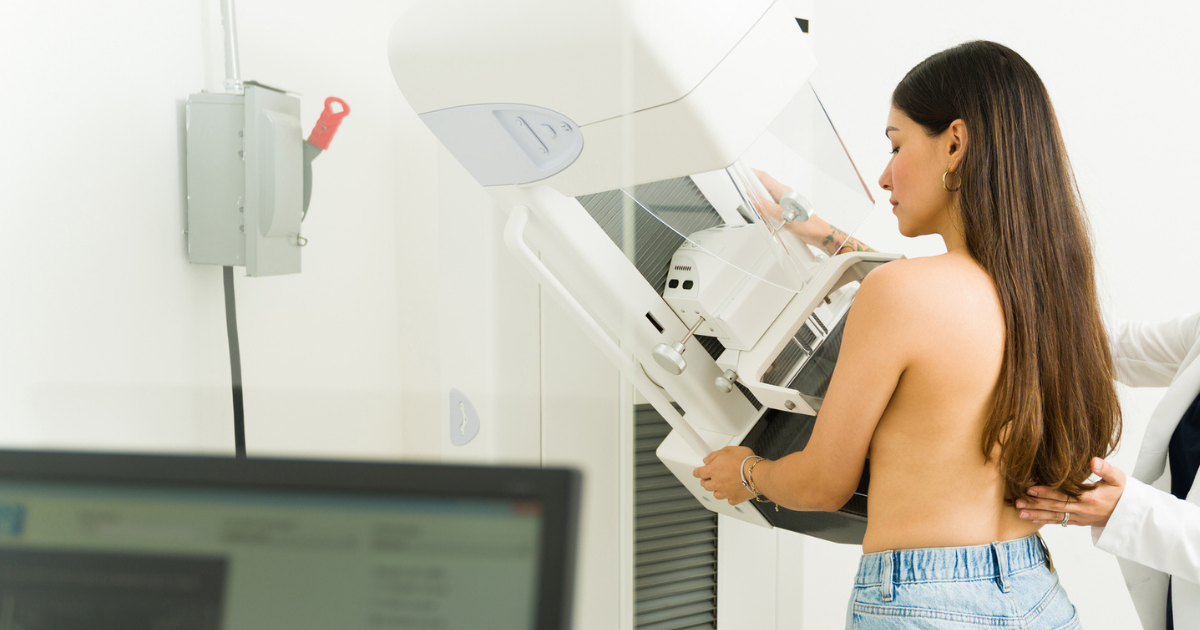What is an annual well-woman exam, and when should I schedule one?

The following information was provided by Jessica Gering, APRN-NP
Keeping up with preventive health care leads to better overall health and well-being. One of the most important preventive visits for women is a well-woman exam.
A well-woman exam is an opportunity to check in on all aspects of one’s health. This includes:
- Assessing physical and emotional well-being
- Ensuring all screenings are up to date
- Checking in on reproductive health, including any concerns
What does a well-woman exam include?
First, your provider will ask questions to thoroughly review your history, including:
- Your medical, family, menstrual, obstetrical and sexual histories
- Any symptoms or concerns you have, such as concerns with menstrual cycles, vaginal discharge, pelvic pain, abnormal bleeding, sexually-transmitted infections and breast concerns
This an excellent opportunity to discuss any concerns – especially those involving mental health, sexuality and all types of abuse. Remember, your provider is there to help you with any concerns without judgment.
The physical exam
Next is a physical exam. You can expect your provider to:
- Take your vital signs, including weight and blood pressure.
- Listen to your heart and lungs, and assess your thyroid and abdomen.
- Perform a breast exam, including visual inspection and palpation of the breast tissue.
- Perform a pelvic exam, including a visual inspection of the exterior genitalia, visualizing the internal vaginal tissue and cervix. If needed, samples will be taken during this part of the exam.
You and your provider will use shared decision-making to determine how often you should have a routine pelvic exam. Blood work and urine samples may also be indicated for screening for other health conditions. With all screenings, it is important to discuss your personal and family history with your health care provider to make the most appropriate screening.
Common screenings
Here is a brief overview of the most common cancer screenings conducted during a well-woman exam:
- Cervical cancer screening, or PAP test: A PAP detects early signs of cervical cancer. During a PAP, a small brush is used to gently remove cells from the surface of the cervix. This sample is examined under a microscope to check for cell changes that may lead to cervical cancer. The American College of Obstetricians and Gynecologists recommends PAP tests start at 21 years of age – regardless of when you first start having sex. Depending on your history and age, screening PAP tests should be performed every three to five years. Typically after age 30, an additional test is performed to look for high-risk human papillomavirus
- Breast cancer screening: A mammogram takes X-ray images of the breasts to look for changes in the breast tissue that may indicate signs of early breast cancer. The American Cancer Society recommends starting mammograms at 40 years of age and no later than 45. Some women at high risk of breast cancer may also have additional screenings such as breast MRI
- Colon cancer screening: The gold standard for colon cancer screening is a colonoscopy. During a colonoscopy, a thin, tube-like instrument is used to look at the colon for abnormal areas or polyps that could cause cancer. Alternative screening for colon cancer includes home-collection DNA kits, which may be available for low-risk individuals. The American Cancer Society recommends colon cancer screenings start at 45 years of age in average-risk individuals
When and how often should I schedule a well-woman exam?
The American College of Obstetricians and Gynecologists recommends a woman should establish care as early as 13 to 15 years old. This is a great opportunity to develop a relationship and get one-on-one health advice in a safe, nonjudgmental environment.
Regardless of the need for a PAP or a pelvic exam, it is recommended that women continue yearly well-woman exam appointments.
How much does a well-woman exam cost?
Most insurance plans cover a well-woman exam under preventive care. This typically includes routine screening for cervical, breast and colon cancers. If you are worried about the cost of your visit, there are many programs available, and the Olson Center for Women's Health has financial counselors to help with any questions.







